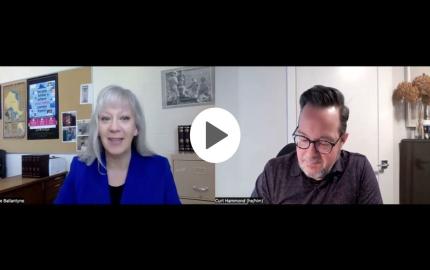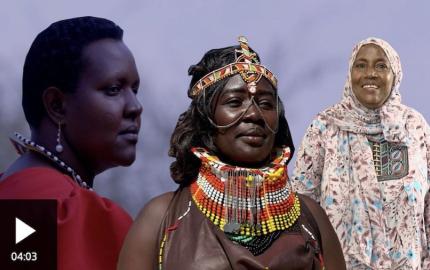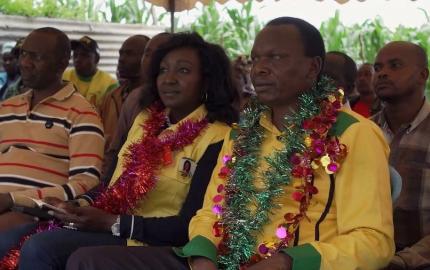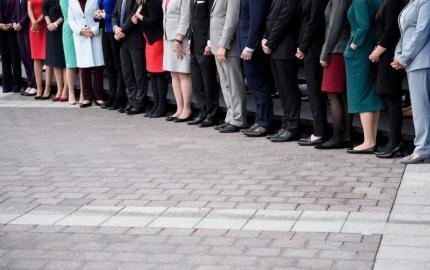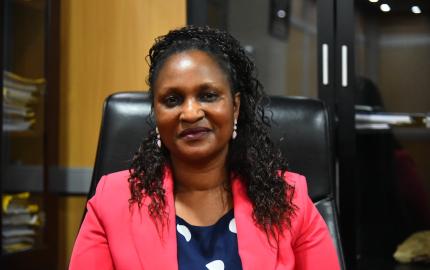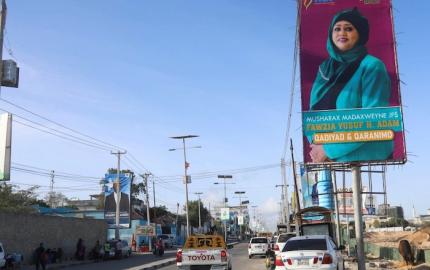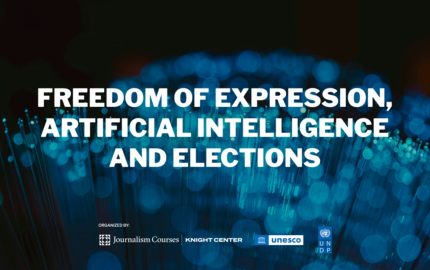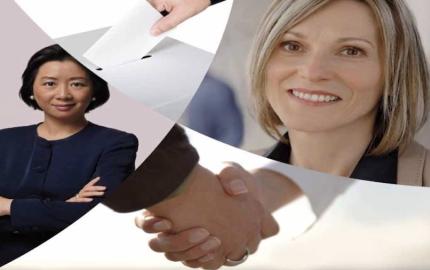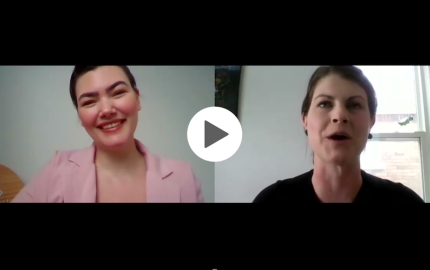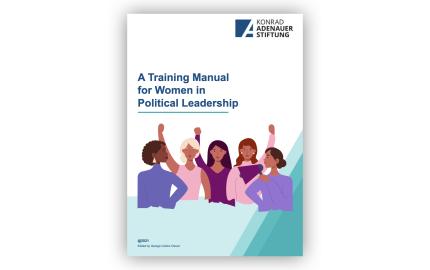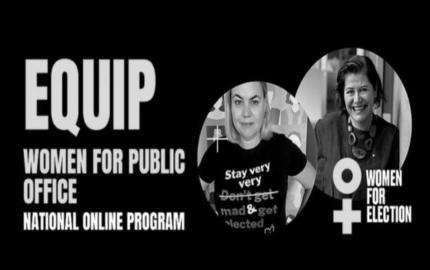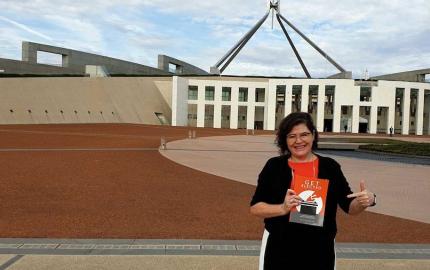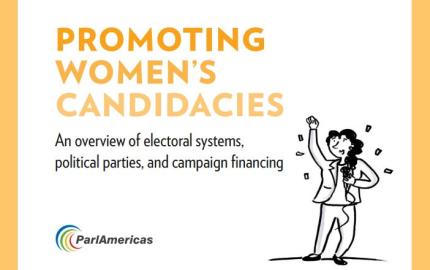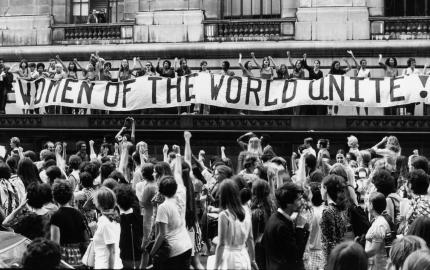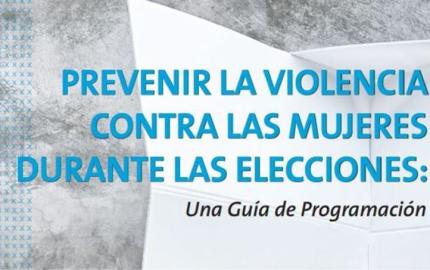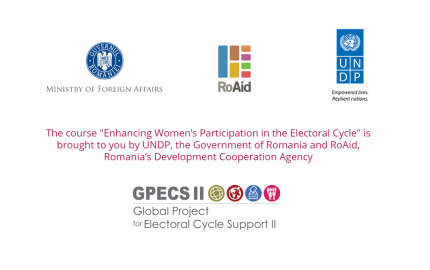Elections
Main navigation
A conversation between Curt (Wellington) and Diane Ballantyne, councillor for Wellington County about the barriers female candidates face.
Click here to access the video.
Three Kenyan women from marginalised communities share their experiences running for political office in the forthcoming general election and describe how they are determined to overcome their challenges.
They describe their setbacks as unique compared to what their counterparts in urban areas face.
Click here to access the video.
As Kenya prepares to vote in a new president next month, we take a closer look at the role of women in the country’s politics. In Uganda, we bring you a report on efforts to respond to a major hunger crisis in the country’s northeast. And the Ivorian artist Frédéric Bruly Bouabré is being remembered in New York and in Paris with different retrospective exhibitions.
Click here to access the video.
During the 2020 caucus cycle, I heard it a lot, the refrain of the cautious Democratic voter. I want to vote for her, but I don’t think she can win. It wasn’t, people reasoned, because they were sexist, but they worried that America was. The calculus never seemed to add up to me. Women win races all the time. In fact, 2020 was a historic year for Republican women winning elected office. As Elizabeth Warren pointed out during a presidential nominating debate in Des Moines, the men on the stage that night had lost 10 elections among them. The only people who hadn’t lost an election were the women. (…)
In 2017, when Regina Bateson, a former diplomat and academic, ran for office, she heard that logic too. The circular reasoning from voters who liked her and wanted to vote for her but were worried about the sexism that she’d face in a general election. It was a frustrating logic, one that wouldn’t be swayed by truth or actualities. Women did win. They could win.
For example, The Reflective Democracy Campaign found that in 2018 women of color comprised 4 percent of candidates and 5 percent of all winners, white women made up 28 percent of candidates and 29 percent of all winners, men of color were 6 percent of candidates and 7 percent of all winners and white men represented 61 percent of candidates and 60 percent of all winners.
Click here to read the article published by Men Yell At Me on 22 Jun 2022.
Kenya’s party primaries recently closed - a process for political parties to select candidates for the various elective seats in August’s General Election. Ann Nderitu, 47, heads Kenya’s Office of the Registrar for Political Parties (ORPP), which is responsible for registration and regulating of country’s political parties. She speaks to UN Women about the importance of good governance and the steps taken to ensure that this year’s election is more inclusive of female candidates.
Why did you get involved in politics?
I’m passionate about governance and making things right and I want public service to be a reference point for good service. In 2007, I was an administrator in Limuru [20km from Nairobi, central Kenya] and was responsible for handling survivors of the post-election violence. I saw the suffering of women and children as people were displaced from Limuru or arriving there, fleeing from their homes. It was a desperate situation. That was the trigger - I decided I was going to participate in something that would prevent something like this ever happening again.
Click here to read the full article published by UN Women on 25 May 2022.
There are a few exceptions but Somali women hardly get into politics or hold top public office in what remains a deeply conservative society. Fowzia Yusuf, one of those, speaks to Al Jazeera on seeking another first.
This Sunday, Somalia is expected to hold its highly anticipated and long-delayed presidential election as 39 presidential candidates jostle for the country’s top position.
Some of the contenders include the incumbent, two former presidents, the immediate former prime minister and the president of the regional state of Puntland, joined the race.
Click here to read the full article published by Al Jazeera on 14 May 2022.
Welcome to the Knight Center’s new free online course, “Freedom of Expression, Artificial Intelligence and Elections,” organized by the Knight Center for Journalism in the Americas, in collaboration with UNESCO, UNDP, and with support of the Electoral Assistance Division (EAD) of the Department of Political and Peacebuilding Affairs (DPPA).
During this four-week massive open online course, which will be held during the month of April 2024, students will learn and explore the fascinating and ever-evolving world of technology and democracy, in particular on the impact of Artificial Intelligence on freedom of expression in elections.
To register for the course please follow these steps:
- Create an account in the Journalism Courses system. Even if you’ve taken a course with us before, you may need to create a new account. Check to see if your previous username and password work before creating a new account.
- Wait for a confirmation in your email indicating that your account has been created. If you do not receive this, please check your spam folder.
- Once your account is created and confirmed, please click on the following link to enroll: https://www.kccourses.org/enrol/index.php?id=121.
- Click “Enroll” to enroll yourself in the course. You will be able to access the course from the “My Courses” menu at the top of the page.
- Upon completing your enrollment, you will gain immediate access to the course and receive a confirmation email as well.
Who can enroll?
- Electoral practitioners and regulators.
- Journalists and media professionals.
- Civil society organizations working on elections, human rights, and gender equality.
- Students and educators.
- Voters and citizens interested in understanding AI and its impact on democracy.
To register for the course, click here.
In order to promote women’s role in municipal politics, FCM has created a Standing Committee on Increasing Women’s Participation in Municipal Government. One of the tools this Committee has created to encourage and support more women in municipal government—including elected office—is this guide to municipal elections for women candidates.
This guide is designed to be a resource for women and for men who wish to promote the role of women in municipal politics. When reading this guide, remember that there is no single way to conduct election campaigns. In addition, this guide is by no means exhaustive. Municipal election policies and regulations vary by province and territory. This guide presents three appendices for those who have additional questions, or who would like clarification of the rules that apply in their own municipalities.
Click here to access the report.
An interview featuring Kate (Oxford) talking with Alyssa Humphrey from the Social Factory.
About Alyssa | Alyssa is a brand developer and digital media marketer located in Woodstock, Ontario with nine years of professional social media management, brand development and web design experience. Between her time in the agency world, coordinating projects, developing strategies, and cultivating brands, to working in-house for corporations and tech firms, Alyssa offers a truly holistic experience for those looking to develop and grow their online presence. An early adopter of social media for business, Alyssa uses this unique perspective to deliberately and tactfully guide her clients into the spotlight through social media strategy and management, content development, and website design. As a passionate advocate for small, local businesses, the majority of Alyssa’s client roster is made up of entrepreneurs looking to turn their small biz into a brand, rebrand an existing business or transition from brick and mortar to e-commerce. She was one of the pillars of SupportingOxford.ca and has been nominated for two Business Excellence Awards through the Woodstock Chamber of Commerce. Learn more at TheSocialFactory.ca
Click here to access the video.
KAS consolidated a training manual that would be used to conduct a long-term tailored engagement on selected aspiring women politicians on effective campaign strategies leading up to elections. The training manual thus seeks to strengthen the capacities of women politicians on various strategic skills on campaigning for elective positions. The publication is available in English and German.
Click here to download the report.
The Women for Election EQUIP program is Australia’s first non-partisan, online political campaign workshop. It is designed to provide in-depth, practical training for female candidates and female campaign managers in advance of Local, State and/or Federal elections in a cross-party environment.
Click here to learn more.
Disillusioned with politicians and frustrated with politics in general? Stop complaining. Be the change you wish to see. Run for office and Get Elected!
Ruth McGowan OAM has worked as a consultant and adviser to councils, peak bodies in local government and community leaders since 2012. She is a former Mayor of Baw Baw Shire Council and an alum of the University of Melbourne’s Pathways to Politics Program for Women.
Get Elected is Ruth’s step-by-step campaign guide to winning public office: local, state, and federal. Written primarily for women, Ruth wants to see gender parity in Australian councils, state and territory parliaments and federal politics. Get Elected explains how women candidates and their supporters can plan and deliver a winning campaign.
Click here to learn more.
In line with its commitment to strengthening democracy and governance in the Americas and the Caribbean, ParlAmericas carries out activities related to electoral processes and women’s political participation. With these objectives in mind, parliamentarians have joined delegations accompanying and observing elections in Haiti and in the United States. These missions applied gender perspectives in their work, examining the equality between men and women in exercising their political rights, with particular attention to the conditions for the participation of women candidates and voters.
In addition, ParlAmericas held a regional gathering, The Electoral Journey of Women Candidates (in Spanish), in Guatemala in September 2016. At this gathering, current and former parliamentarians and political leaders from Central America, along with experts and representatives from the Department of Electoral Cooperation and Observation (DECO) and the Inter-American Commission of Women (CIM, by its Spanish initials) of the Organization of American States (OAS), identified the main obstacles women candidates face throughout the electoral cycle and proposed legislative reforms to establish equitable conditions in electoral processes.
Click here to see the training guide.
Since Hillary Clinton’s devastating loss in the 2016 election, there has been a renewed interest for women in politics and women running for politics. Emily’s List reported in March that over then thousand women reached out to them about running for office, a number bigger than the number of women who reached out during the entire 2016 election cycle, from January 2015 to November 2016. And Emily’s List is just one of many organizations out there that is helping women run for office. Below are eight institutions helping create a world with a more equal representation of the genders in office.
The name of this organization is actually an acronym for “Early Money Is Like Yeast” (i.e., it makes the dough rise). Their reasoning behind this unique name is that it’s a reference to a convention of political fundraising that receiving major donations early in a race is helpful in attracting other, later donors.
Emily’s List helps Democratic women run for office by recruiting women and building winning campaigns at every level of government. Since their founding in 1985, they have helped elect twelve governors, twenty-three senators, one hundred and sixteen House representatives and over eight hundred women to state and local office. Emily’s List also hosts candidate trainings for women who want to run for office and conducts research about women’s political views and voting behaviors.
She Should Run is a relatively newer organization that helps women run for office. Founded in 2011, the organization has inspired over fifteen thousand women to run for office since the 2016 election. She Should Run has also launched an initiative called #250Kby2030 that strives to get two hundred and fifty thousand women to run for office by 2030.
She Should Run accepts women of all political ideologies, ethnicities and backgrounds. Through its Ask a Woman to Run tool, people can let She Should Run know about great women leaders who they think should run for office. She Should Run also has an Incubator that offers online resources for women and goes to cities for in-person and virtual sessions, Chicago being the next city it’ll be in.
Click here to access the full list published by Study Breaks.
The publication “Preventing violence against women in elections: A programming guide”, jointly produced by UN Women and UNDP, brings to light the scourge of violence against women in elections.
It seeks to identify the specific components of violence against women in elections, including types, tactics, victims and perpetrators, and presents options for policy and programming responses based on current good practices. It also provides examples of definitions and methods from all regions that may prompt ideas for actions according to each country’s national context.
This guide is intended for those best positioned to prevent and mitigate violence against women in elections, including national electoral stakeholders, international organizations such as UNDP, UN Women and other UN agencies, as well as those providing programming support on electoral assistance, women’s political participation, human rights monitoring and ending violence against women. It will also be a resource for members and especially leaders of political parties, electoral management bodies, civil society organizations, women’s groups and gender equality activists.
Source: UN Women
Promoting the equal political participation of women is a key aspect of achieving inclusive and sustainable human development and achieving the targets set in the 2030 Agenda.
The e-learning course ‘Enhancing Women’s Political Participation Throughout the Electoral Cycle’ covers the three phases of the electoral cycle, as well as internal EMB structures and highlights entry points to boost women’s participation in different roles. During the course, the user is provided with a detailed overview of the existing policy and human rights framework, relevant publications and other knowledge tools.
The target audience of the e-learning course are men and women working in electoral administration, candidates, political party members, but also assistance providers and members of civil society organizations.
Click here to take the course.
